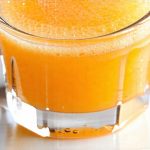Raw juicing has exploded in popularity as a way to increase nutrient intake and support overall wellness. Many people embark on extended raw juice cleanses or incorporate daily large quantities of fresh juices into their diets, believing it’s an effortless route to vibrant health. While the concentrated vitamins, minerals, and enzymes found in raw juice can be beneficial, dramatically increasing your intake without considering potential downsides can lead to unexpected digestive distress. One of the most common complaints among enthusiastic juicers is loose stools or even diarrhea – a signal that something isn’t quite right within their digestive system. This isn’t necessarily a sign of toxicity being released (as sometimes claimed), but rather a natural consequence of significant dietary shifts and the way our bodies react to large volumes of rapidly digested sugars and fiber.
The issue often stems from an imbalance created by overwhelming the gut with substances it’s not accustomed to processing in such quantity. Juices, stripped of much of the fiber present in whole fruits and vegetables, are quickly absorbed into the bloodstream, leading to osmotic effects that draw water into the intestines. This rapid influx of liquid can loosen stool consistency. Furthermore, certain juice combinations – particularly those high in fructose or sorbitol (found in apples, pears, and stone fruits) – can exacerbate this effect. Understanding why this happens is crucial for navigating raw juicing effectively and preventing unpleasant side effects, rather than simply attributing them to a ‘healing crisis’. It’s about finding a balance that supports your body’s natural processes, not overriding them.
The Role of Fiber & Sugar in Digestive Upset
The core problem with excessive juicing often isn’t the juice itself, but what’s missing from it – namely, fiber. Whole fruits and vegetables contain both soluble and insoluble fiber, which play vital roles in digestion and gut health. Insoluble fiber adds bulk to stool, promoting regular bowel movements and preventing constipation. Soluble fiber dissolves in water, forming a gel-like substance that slows down digestion, allowing for better nutrient absorption and preventing rapid spikes in blood sugar. When you juice, you’re largely removing the insoluble fiber and significantly reducing the soluble fiber content. This leaves your digestive system receiving a concentrated dose of sugars without the buffering effect of fiber.
This can lead to several issues: – Increased intestinal motility (speeding up digestion) – leading to looser stools. – Osmotic diarrhea – where undigested sugars draw water into the intestines. – Altered gut microbiome – as the sudden influx of sugar feeds certain bacteria, potentially disrupting the delicate balance of your gut flora. The type of fruits and vegetables used also plays a significant role. Juices heavy in fructose (apple, pear) or sorbitol can be particularly problematic for some individuals, as these sugars aren’t always efficiently absorbed, leading to fermentation in the large intestine and subsequent gas, bloating, and diarrhea. Simply put, juicing concentrates the sweet parts while removing the components that slow down digestion.
Juicing isn’t inherently bad, but it requires mindful consideration of how it impacts your digestive system. Many people underestimate the sheer volume of sugar even natural fruit juices contain. While different from refined sugars, fructose and glucose still need to be processed by the body, and excessive amounts can overwhelm the digestive capacity. Combining a large amount of juice with an already sugary diet is a recipe for discomfort. A balanced approach that incorporates whole fruits and vegetables alongside moderate juicing can mitigate these issues.
Identifying Your Trigger Juices & Combinations
Determining which juices or combinations are causing your loose stools requires some detective work. Start by keeping a detailed food diary, specifically noting: – The types of fruits and vegetables used in each juice. – The quantity of juice consumed. – Any accompanying symptoms (bloating, gas, cramping). – The timing of the symptoms relative to juice consumption. This will help you identify patterns and pinpoint potential triggers. For example, if you consistently experience loose stools after drinking apple-heavy juices, then apples may be a contributing factor.
Pay attention to combinations as well. Certain pairings can exacerbate digestive issues. Juicing carrots with large amounts of pineapple might cause problems for some due to the high sugar content and enzymatic activity in pineapple. Similarly, combining citrus fruits (orange, grapefruit) with other fruits could irritate sensitive stomachs. Experimenting cautiously is key – introduce new juice combinations gradually and observe your body’s response. If you suspect a particular ingredient or combination is causing issues, eliminate it from your diet for a few days to see if symptoms improve.
Another important consideration is the individual’s baseline digestive health. Those with pre-existing conditions like Irritable Bowel Syndrome (IBS) or fructose malabsorption may be more sensitive to the effects of juicing and need to exercise even greater caution. It’s essential to listen to your body and adjust your juicing habits accordingly. Don’t push through discomfort in the name of ‘detoxification’; prioritize digestive well-being.
Reintroducing Fiber & Supporting Gut Health
If you’ve experienced loose stools from excessive juicing, gradually reintroducing fiber into your diet is crucial for restoring digestive balance. This doesn’t mean immediately switching to a high-fiber diet; start slowly and increase intake incrementally. – Begin with small portions of cooked vegetables like steamed broccoli or spinach. – Add a tablespoon of ground flaxseed or chia seeds to your morning smoothie (or oatmeal). – Incorporate whole fruits into your diet – apples with the peel, berries, bananas – but in moderation.
Focus on incorporating both soluble and insoluble fiber sources. Oatmeal, lentils, beans, and psyllium husk are excellent sources of soluble fiber, while whole grains, bran, and vegetables with skins provide insoluble fiber. Probiotics can also play a vital role in restoring gut health. Consider supplementing with a high-quality probiotic or consuming fermented foods like yogurt (if tolerated), kefir, sauerkraut, or kimchi. These introduce beneficial bacteria into your gut, helping to rebalance the microbiome.
Hydration is equally important. Diarrhea and loose stools can lead to dehydration, so ensure you’re drinking plenty of water throughout the day. Electrolyte imbalances are also common with diarrhea; consider replenishing electrolytes with coconut water or a balanced electrolyte solution. If symptoms persist despite these measures, it’s essential to consult with a healthcare professional to rule out any underlying medical conditions and receive personalized guidance.
Moderation & Balanced Approaches
The key takeaway is that moderation is paramount when it comes to raw juicing. It’s not about eliminating juice entirely; it’s about incorporating it into a balanced diet in a way that supports your digestive health. Rather than focusing solely on juice cleanses, consider integrating small amounts of juice as part of a wider strategy for improving nutrition. – Limit juice intake to one 8-ounce serving per day, or even less if you’re sensitive. – Prioritize vegetables over fruits in your juices, reducing the overall sugar content. – Combine juicing with whole fruit and vegetable consumption to ensure adequate fiber intake.
Avoid overly restrictive juice cleanses that eliminate essential nutrients and disrupt digestive function. Instead, focus on building a sustainable lifestyle that prioritizes whole foods, balanced nutrition, and regular physical activity. Remember that your body is not designed to process large volumes of concentrated sugars without the buffering effect of fiber. Listen to its signals and adjust your juicing habits accordingly. Treat juicing as a supplement to a healthy diet, not a replacement for it. Consider how mixing meal types might also affect digestion during juice cleanses. Also, be mindful of the impact that morning meals with too much oil can have on your system and how it interacts with juicing. Finally, remember to pay attention if you experience issues after eating too many raw vegetables.


















